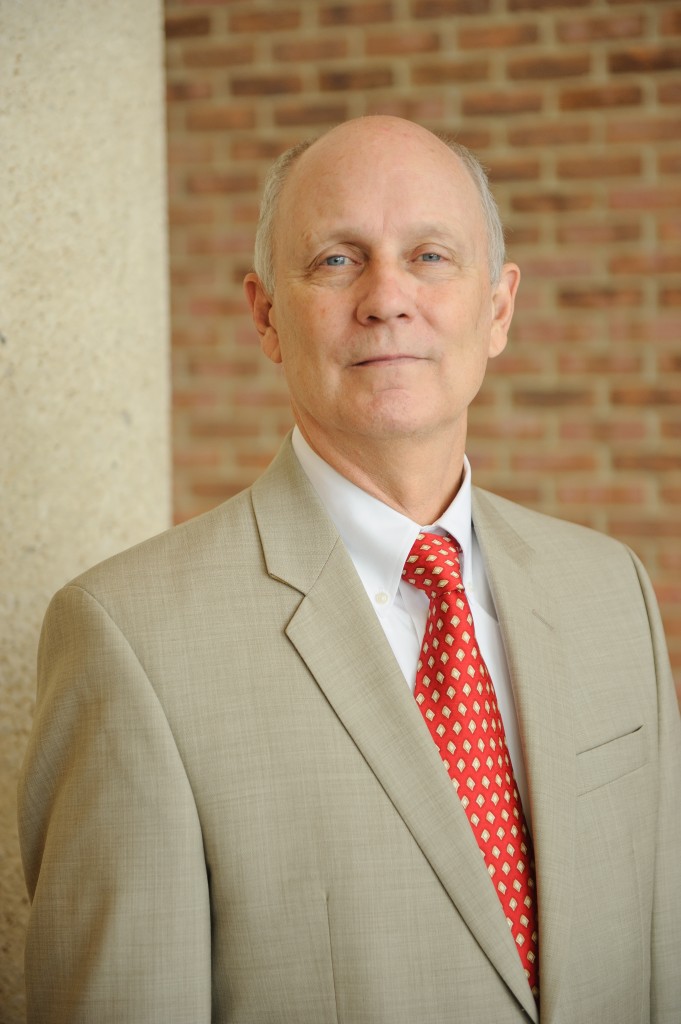 Professor Steve Emens (’76) has been shaping prosecutors and public defenders for more than 25 years as the Faculty Advisor and a Coach for the Law School’s Intercollegiate Trial Advocacy Team.
Professor Steve Emens (’76) has been shaping prosecutors and public defenders for more than 25 years as the Faculty Advisor and a Coach for the Law School’s Intercollegiate Trial Advocacy Team.
Each semester, he and Robert Prince (’74), a Trial Attorney for Prince Glover & Hayes in Tuscaloosa, coach trial advocacy teams and accompany them as they compete against other teams across the nation.
In the classroom and in practice sessions, Emens focuses on the art of trying a case. He teaches students how to present a case and how to persuade a jury.
“The great lawyers understand the art of it: the psychology of dealing with a jury and the psychology of dealing with witnesses,” he said. “This is what makes it so challenging and so rewarding.”
After graduating from Alabama Law, Emens was managing attorney for the Alabama Legal Services System. In 1980, he joined the Law School’s clinical program as deputy director, serving as the director from 1983 to 1997. As an expert in clinical education, he has been a member of ABA accreditation teams. In 1984, Dean Emens began serving as director of the Alabama Bar Institute for Continuing Legal Education and has served on the board of directors of the Association of Continuing Legal Education Administrators. In 1995 he became professor of clinical instruction, and he teaches in the areas of trial advocacy, evidence, interviewing and counseling. He is currently on the faculty of the National Institute of Trial Advocacy, the faculty of the Legal Services Corporation’s national training program and a member of the Alabama Defense Lawyers Trial Academy.
Emens and Prince share the teaching load, dividing up the cases. They examine each other’s problem and provide insight. The nature of the problem often requires several coaching sessions a week.
“He doesn’t coach to shine them up so they can win a competition,” Prince said. “Some schools do that. We don’t do that. We like to win, but that’s not the priority. The priority is teaching them how to be a trial lawyer.”
Emens helped Bridget Harris, a 2L, with the art of cross-examination. In practice, Emens noticed she was too aggressive when questioning a witness. He taught her she doesn’t have to be loud to get her point across, and he showed her how to lower her voice and make eye contact so that the jury would know what she is saying is important. Weeks later, Harris won the Best Cross-Examination Award at the National Trial Tournament hosted by the Michigan State Law School and the State Bar of Michigan.
Her win “proves his teaching style is effective,” Harris said.
Emens said the class attracts students who like people and can work well in a high-pressure, emotionally charged environment.
“I deal with very motivated students who want to learn the skills of being a trial lawyer,” he said. “The only place where they learn many of the skills of being a trial lawyer is in this class.”
Kayleigh Mohler, a 3L, received a perfect score for how she handled herself in the courtroom when her trial advocacy team traveled to San Juan, Puerto Rico, to participate in the National Trial Tournament sponsored by the Interamerican University of Puerto Rico. During the competition, Mohler said the UA trial advocacy team knew the evidence much better than the other teams, and the other teams often appeared scripted.
“We want to win a competition because we want our program to have the legitimacy,” Mohler said. “We know we have that legitimacy as far as being practice-ready from Dean Emens and Mr. Prince. We want to win our way. We don’t want (Emens) to write a script for us.”
Mohler also uses what she learned in Emens’s classes when she tries cases as a part-time paid law clerk for the Tuscaloosa District Attorney’s Office. She knows how to enter evidence, where to stand when she’s giving a direct examination and how to preserve the record. So far, she has tried two jury trials and more than a dozen bench trials. It’s that kind of success that drives Emens to coach trial advocacy teams year after year.
“I do this not to win competitions,” he said. “I do it to get our students ready to try cases in the real world.”
